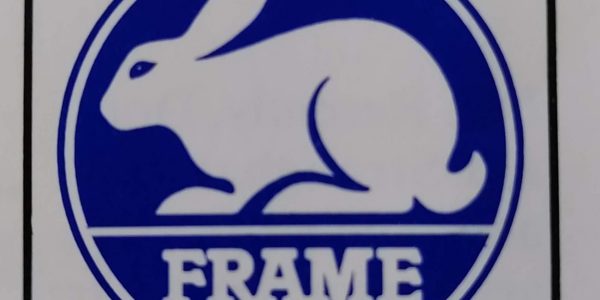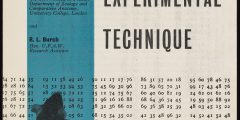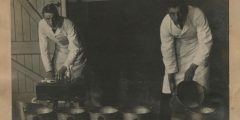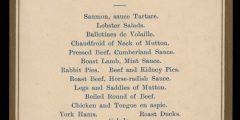Advocates for animal welfare: FRAME
February 9, 2024
In our previous blog in this series, ‘Advocates for animal welfare: The Three Rs’, we introduced the ‘The Principles of Humane Technique in Experiments on Animals’ by William M.S. Russell and Rex Burch, which was to have such an impact on the career of Michael Balls, OBE, Emeritus Professor of Medical Cell Biology at the …
Advocates for animal welfare
December 1, 2022
Work has just finished on an 18-month project to catalogue papers held by Manuscripts and Special Collections which chart the progress made in promoting the concept of the Three Rs, the guiding principles of Reduction, Replacement and Refinement, in regards to the use of animals in scientific research. The work was made possible by a …
An almost entirely cow-free post about cows
July 15, 2021
You may have seen the recent news that the University of Nottingham has been trialling medication to make cows less gassy and, potentially, reduce methane emissions in the dairy industry. The research is being carried out at Sutton Bonington, and it’s part of a century-long tradition of research carried out there. The Sutton Bonington Campus …
Agricultural Societies
July 25, 2020
Many agricultural societies were formed during the 18th century at a local level, enabling like-minded farmers to meet on both a professional and social level. The general aim was to share information on the latest farming methods and to improve livestock breeding. References to these societies can be found amongst the family and estate papers …
Fantastic Beasts and Where to Find Them
June 25, 2020
In the 17th and 18th centuries, a time before Instagram, National Geographic, or even David Attenborough, there was great interest amongst Europeans in the animals which roamed distant realms. These fantastic beasts were eagerly read about in publications written by explorers brave enough to adventure to far-off lands, with detailed engravings made from eye-witness accounts …





